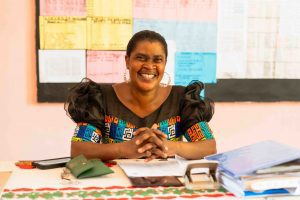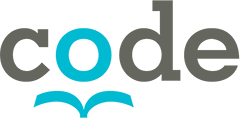 When it comes to how well a child learns to read and write, nothing is more important than the quality of teaching. This is why CODE is so deeply committed to helping teachers get access to the best possible training and the most effective literacy learning techniques. However, the way we achieve this is always evolving.
When it comes to how well a child learns to read and write, nothing is more important than the quality of teaching. This is why CODE is so deeply committed to helping teachers get access to the best possible training and the most effective literacy learning techniques. However, the way we achieve this is always evolving.
While large-scale literacy programs funded by global agencies often promote prescriptive, one-size-fits-all teacher training solutions, CODE’s experiences suggest that a more adaptable, responsive approach is essential.
The evolution in CODE’s approach is reflected in our new Quality Teaching and Learning (QTL) Framework. Rather than a rigid model, the QTL Framework is a guiding philosophy that shapes every aspect of our work, from project development to delivery, all aimed at enhancing children’s literacy. Through this Framework, CODE reaffirms its commitment to sustainable and empowering projects that are deeply informed by local contexts and built upon the strengths already present in classrooms and communities.
The QTL Framework, which lies at the heart of CODE’s soon-to-be launched Strategic Plan (2025-2030), is characterized by three interconnected elements: 1. Knowledge-Skills-Praxis, 2. Responsiveness, and 3. Agency.
What do each of these mean in the context of creating effective and joyful literacy classrooms?
- Knowledge-Skills-Praxis: This focuses on equipping teachers with the deep understanding and tools they need to support young readers and learners. It emphasizes continuous professional development and connecting educators with the most effective strategies for fostering literacy in their local context.
- Responsiveness: This is about recognizing the unique needs of every student. Every child brings different strengths, challenges, and backgrounds to the classroom. Teachers must be empowered to adjust their teaching methods to ensure that every child is meaningfully included.
- Agency: Agency is vital for both students and teachers. For children, it means being able to use literacy to express themselves, ask questions, problem-solve, and explore their interests. For teachers, agency refers to professional empowerment – the ability to adapt their instruction to meet the specific needs of their students and classroom environment and seek support for the areas they identify for ongoing professional learning.
A recent teacher-training workshop at Freetown Polytechnic in Sierra Leone illustrates how CODE’s QTL Framework is being implemented. Julie Donohue-Kpolugbo, CODE’s Literacy Education and Gender Specialist shares, “The workshop focused on three key areas: building teachers’ knowledge and skills to address current challenges in improving student literacy, helping them apply new techniques in real classroom settings, and encouraging reflective practices to refine and enhance their teaching. We are moving beyond a one-size-fits-all approach to promote tailored teaching methods and to cultivate a culture of continuous growth and improvement.”
Guided by our new Quality Teaching and Learning Framework, CODE is working to advance effective literacy education by combining excellence with adaptability and empowerment. We know that teachers are the key to helping children become confident readers and writers. Our aim is to ensure that they have the resources, skills, motivation, and infrastructure they need to succeed – one classroom at a time. The promising early results in Sierra Leone show the potential of this more adaptable approach – and we’re just getting started.


